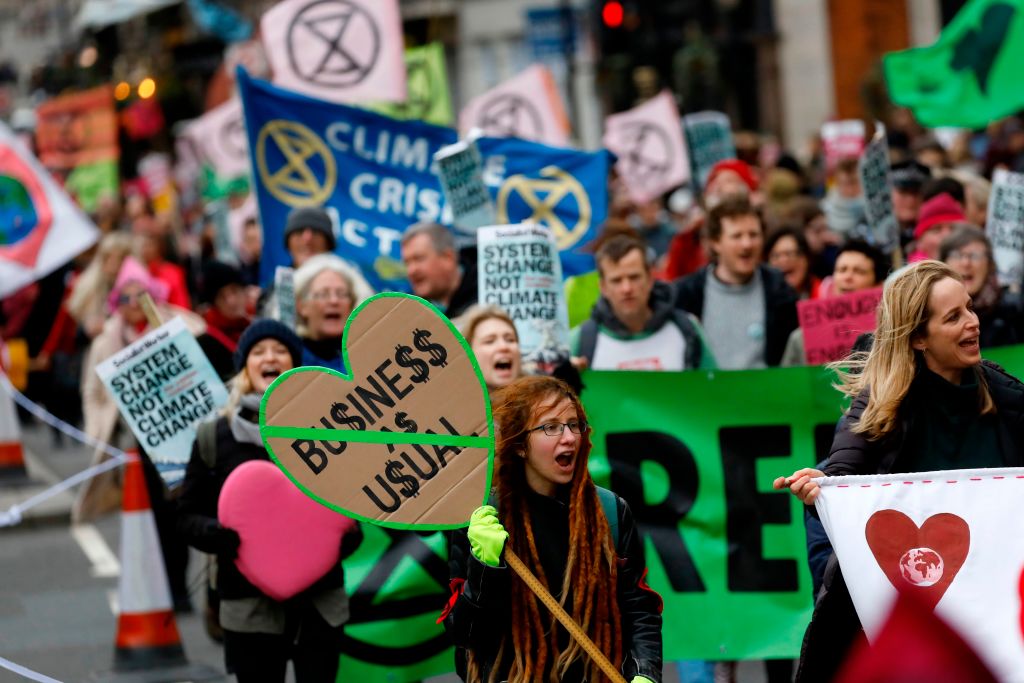A strange thing happened as coronavirus reached Europe’s shores. Concepts like ‘net zero’ and ‘climate crisis’ which had previously dominated the agenda vanished overnight.
While the vast majority of people have accepted this change of tack in the fight against the virus, there have been some environmentalists who seem to be put out at seeing their cause shunted down the list of political priorities. Only this week, photos surfaced on Twitter of posters attributed to Extinction Rebellion (which denies any connection to what it calls a ‘fake account’) claiming that Covid-19 was an effective tool in reducing the size of the human race. ‘Corona is the cure, humans are the disease’, the placard said.
Others have attempted to find scientific reasons for why coronavirus is the result of humanity’s destruction of the planet. Last week, the Guardian published a piece suggesting that the loss of animal habitats was responsible for diseases like ebola and coronavirus spreading to humans. Similar arguments have appeared in the New York Times.
But the scientific consensus remains that Covid-19 has a cultural not environmental cause. Most scientists agree that the virus originated in Wuhan’s unhygienic wet markets where live animals are sold for meat alongside dead ones. This has less to do with animal habitats and more to do with the culinary tastes and practices of a particular region. Its rapid spread is down to our globalised world; the same globalised world that has, of course, enabled the cause of Greta Thunberg and Extinction Rebellion to gain such rapid traction.
While careful thought does need to be given to how we interact with the natural world and protect animal habitats, especially as the world’s population grows, it’s disingenuous to turn the current crisis into a political cause.
It will be interesting to see what happens to environmentalism if and when the pandemic passes. The present lockdown has more than a hint of the apocalyptic about it; our current reality far surpasses much of the rhetoric that has been used by the likes of Extinction Rebellion to galvanise politicians over the past year.
It may prove difficult for Extinction Rebellion to persuade the public to change their lifestyles and adopt further restrictions to their freedoms when they have just lived through three months or more of genuine and necessary infringements of their liberties.
Climate change, having dominated the agenda for so long, is having to take a back seat while we deal with this pandemic. This might not be ideal for environmental campaigners but they shouldn’t respond by trying to crowbar the corona crisis into the climate agenda. To do so will only alienate the public, most of whom are doing everything in their power at the moment to help defeat a far more imminent threat.







Comments